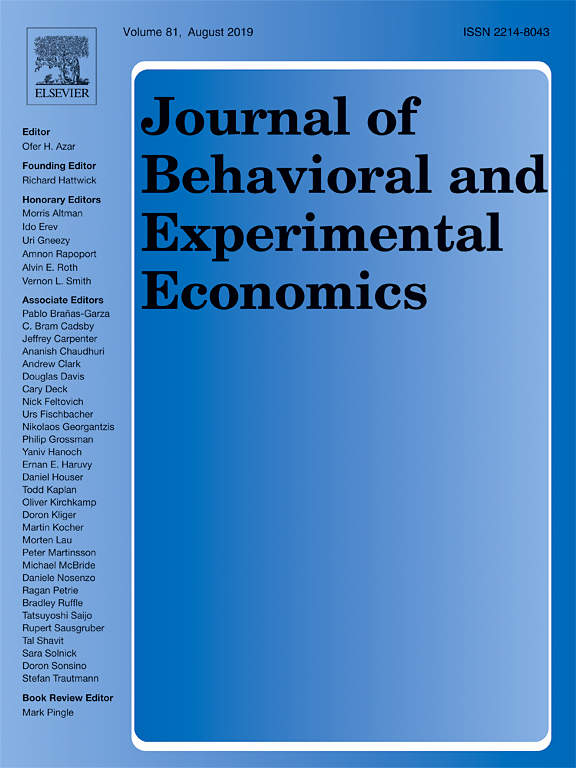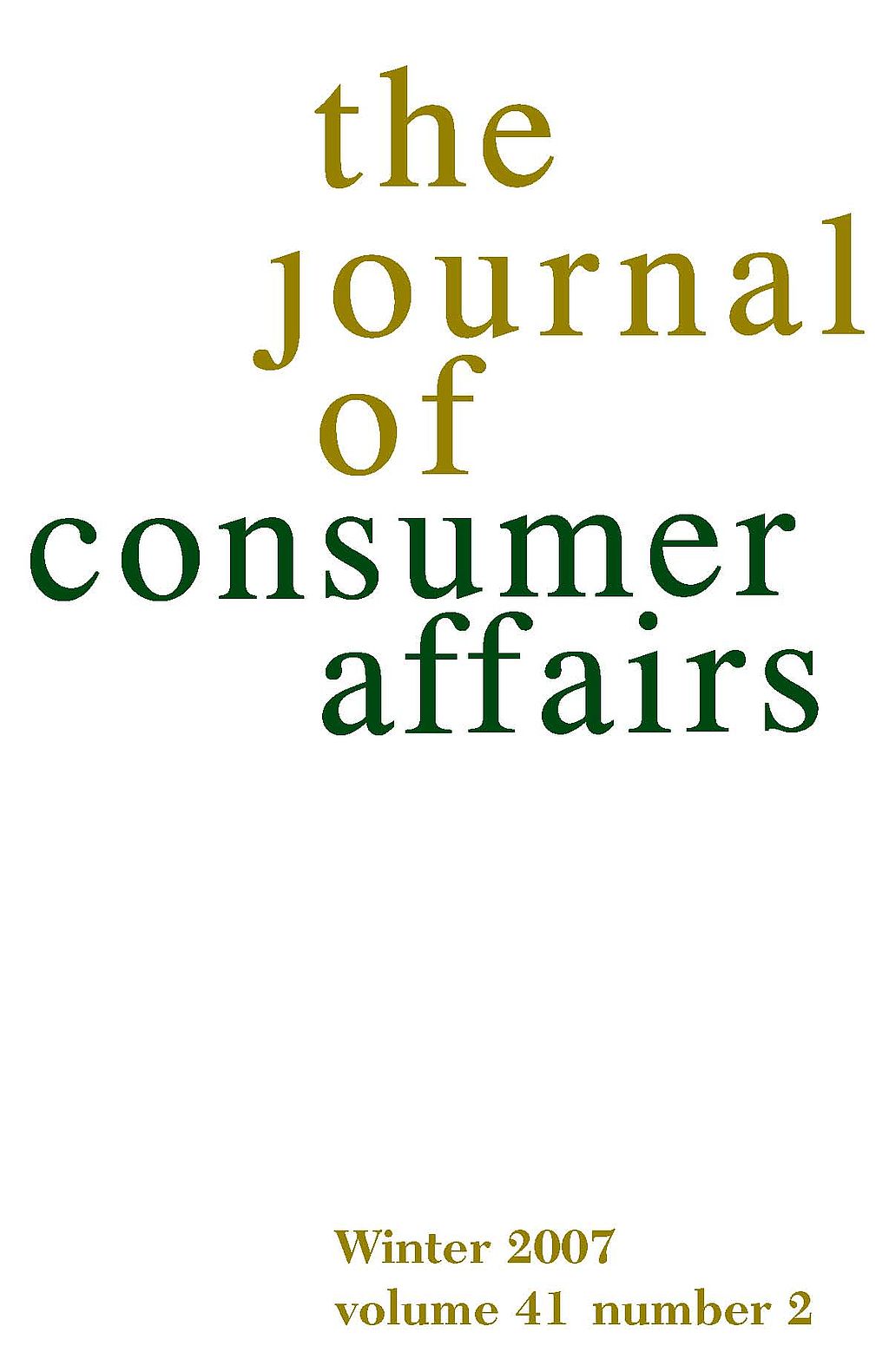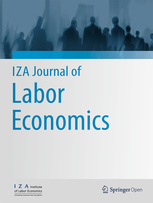Verhalten in Organisationen und Unternehmenserfolg
Die Forschungsgruppe untersucht, wie sich nicht-monetäre Arbeitsplatzcharakteristika (z. B. Mitsprache am Arbeitsplatz oder die wahrgenommene Sinnhaftigkeit der Arbeitsaufgabe) und Managerentscheidungen (z. B. bezogen auf Entlassungen) auf die Motivation der Arbeitnehmer auswirken. Der methodische Schwerpunkt der Gruppe liegt auf der Durchführung von (Feld-)Experimenten. Diese ermöglichen nicht nur eine exakte Messung des Arbeitseinsatzes; vor allem können Leistungsänderungen durch konstant gehaltene Bedingungen allein auf die Intervention des Experimentators zurückgeführt werden.
Forschungscluster
Produktivität und InstitutionenIhr Kontakt

Mitglied - Abteilung Gesetzgebung, Regulierung und Faktormärkte
Referierte Publikationen

Gender Stereotypes still in MIND: Information on Relative Performance and Competition Entry
in: Journal of Behavioral and Experimental Economics, October 2019
Abstract
By conducting a laboratory experiment, I test whether the gender tournament gap diminishes in its size after providing information on the relative performance of the two genders. Indeed, the gap shrinks sizeably, it even becomes statistically insignificant. Hence, individuals’ entry decisions seem to be driven not only by incorrect self-assessments in general but also by incorrect stereotypical beliefs about the genders’ average abilities. Overconfident men opt less often for the tournament and, thereby, increase their expected payoff. Overall efficiency, however, is not affected by the intervention.

Financial Literacy and Self-employment
in: Journal of Consumer Affairs, Nr. 2, 2019
Abstract
In this paper, we study the relationship between financial literacy and self‐employment. We use established financial literacy questions to measure literacy levels. The analysis shows a highly significant and positive correlation between the index and self‐employment. We address the direction of causality by applying instrumental variable techniques based on information about maternal education. We also exploit information on financial support and family background to account for concerns about the exclusion restriction. The results provide support for a positive effect of financial literacy on the probability of being self‐employed. As financial literacy is acquirable, the findings suggest that entrepreneurial activities might be increased by enhancing financial literacy.

When the Meaning of Work Has Disappeared: Experimental Evidence on Employees’ Performance and Emotions
in: Management Science, Nr. 6, 2017
Abstract
This experiment tests for a causal relationship between the meaning of work and employees’ motivation to perform well. The study builds on an existing employer–employee relationship, adding realism to the ongoing research of task meaning. Owing to an unexpected project cancelation, we are able to study how varying the information provided about the meaning of previously conducted work — without the use of deception, but still maintaining a high level of control — affects subsequent performance. We observe a strong decline in exerted effort when we inform workers about the meaninglessness of a job already done. Our data also suggests that providing a supplemental alternative meaning perfectly compensates for this negative performance effect. Individual characteristics such as reciprocal inclinations and trust prompt different reactions. The data also show that the meaning of work affects workers’ emotions, but we cannot establish a clear relationship between emotional responses and performance.

Trade Union Membership and Paid Vacation in Germany
in: IZA Journal of Labor Economics, Nr. 1, 2015
Abstract
In Germany, dependent employees take almost 30 days of paid vacation annually. We enquire whether an individual’s trade union membership affects the duration of vacation. Using data from the German Socio-Economic Panel (SOEP) for the period 1985 to 2010 and employing pooled OLS-estimators, we find that being a union member goes along with almost one additional day of vacation per year. Estimations exploiting the panel structure of our data suggest that a smaller part of this vacation differential can be due to the union membership status, while self-selection effects play a more important role.







